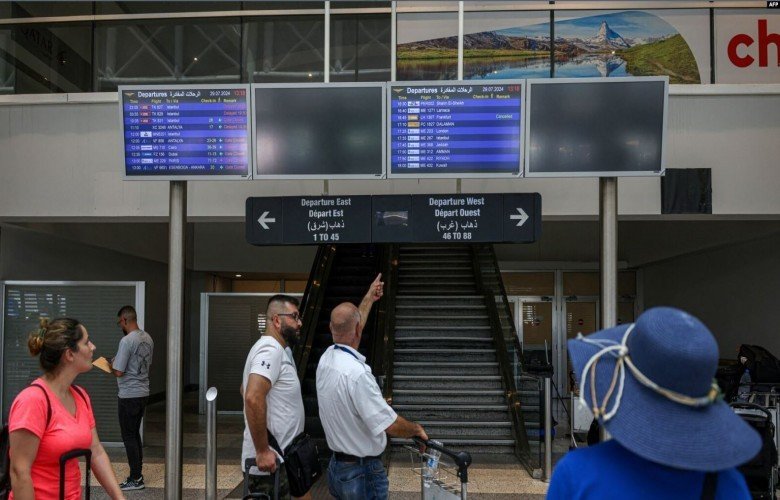Several Western governments are advising their citizens to leave Lebanon as tensions between Israel and Iran-backed Hezbollah militants escalate.
Lebanon is bracing for an Israeli military response following a suspected Hezbollah rocket attack that killed 12 Druze children on a soccer field in the Golan Heights on Saturday. Israel has vowed retaliation, and civilians are preparing for what officials warn could be days of conflict.
The U.S., Germany, the UK, and France are among the countries issuing travel warnings, urging citizens to leave Lebanon immediately or avoid traveling there as the risk of conflict increases.
Rena Bitter, U.S. Deputy Assistant Secretary for Consular Affairs, urged Americans in Lebanon to “make a plan and leave before the crisis starts” in a video post on X.
“We recommend that U.S. citizens make an action plan and depart before the crisis begins. Regular transportation remains the best alternative as local traffic and infrastructure are still intact and functioning normally,” Bitter said.
Germany has also advised its citizens to leave Lebanon immediately, citing the potential suspension of flights and the possibility of Beirut’s airport closing if the situation worsens. Airlines such as Lufthansa, Swiss International Airlines, Air France, and Turkish Airlines have suspended flights to Beirut, emphasizing safety concerns.
Lebanon’s interim Foreign Minister Abdullah Bou Habib told CNN that the government can do little to restrain Hezbollah but added that communication lines remain open.
“Our options are always bad and worse. I don’t think we can do much. But we are always in touch with them. The Prime Minister and the Speaker of Parliament talk to them,” Bou Habib said.
Hezbollah reported that two of its members were killed in an Israeli drone strike in southern Lebanon on Monday morning. Analyst Dania Koleilat Khatib said it is unclear where Israel might strike next in Lebanon.
Dania Koleilat Khatib, Director of the Research Center for Cooperation and Peacebuilding in Beirut, told Voice of America, “Both sides do not want war but are preparing for it.”
“Everyone is expecting a strike, and it’s coming. They don’t know the scale, so the only message they’re sending to Israel is that if you cross certain red lines, if you go deep, if you enter Beirut, they will respond,” Khatib said. “Many wars are not deliberate. Mistakes can lead to war, which is why we need a ceasefire.”
U.S. Special Envoy Amos Hochstein expressed concern that “miscalculations or accidents” could involve civilians and force one side to retaliate in a way that could trigger a larger conflict. A strike on Beirut, he warned, could lead to significant escalation.







